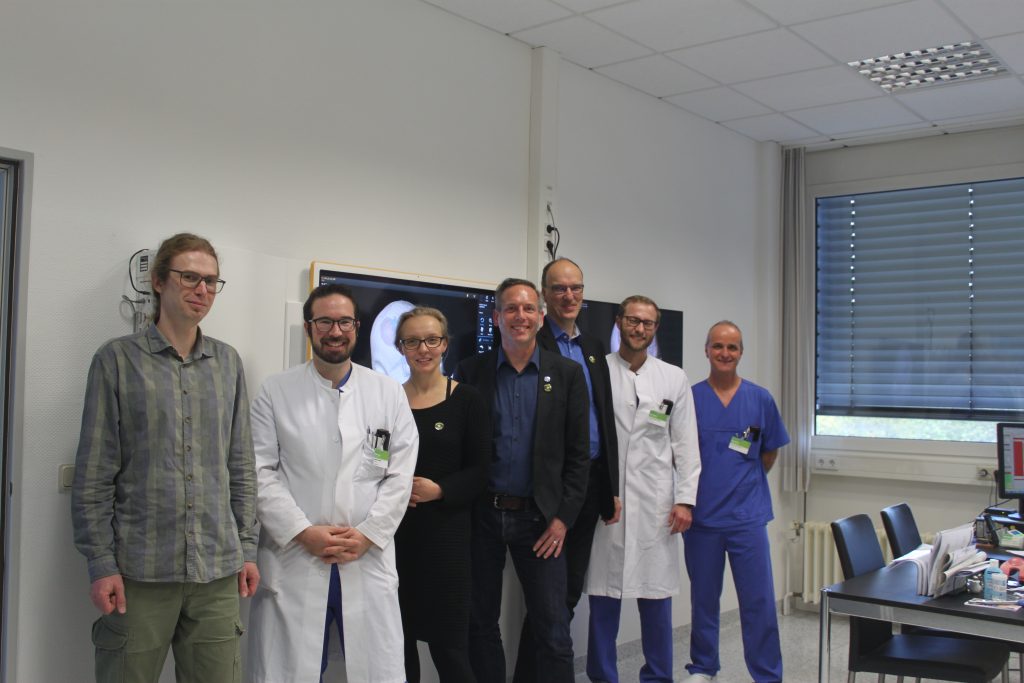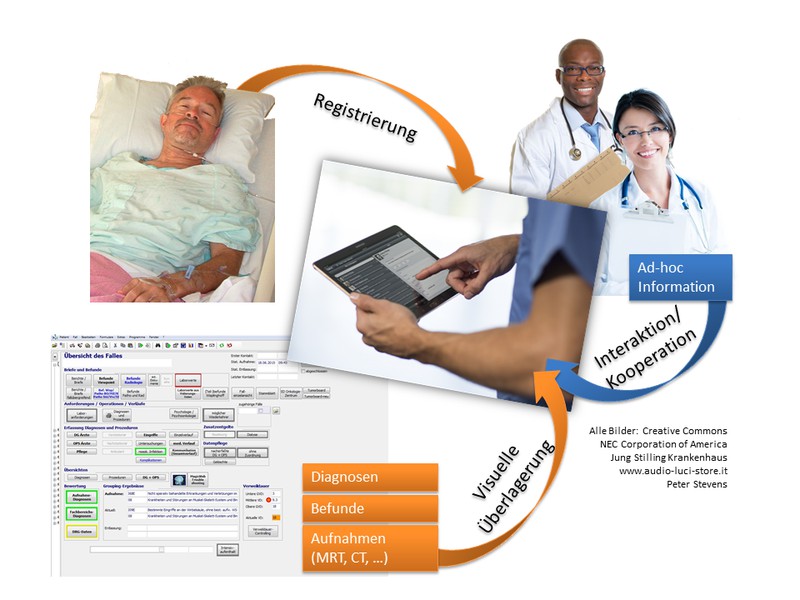A06 - Visual Integrated Clinical Cooperation
Finished after Phase II.

Principal Investigators:
Researchers:
Prof. Dr. Veit Braun
Dr. Habibi Yahya
Prof. Dr. med. Nabeel Farhan
Former Researchers:
The project studies cooperative workflows on a neurosurgical ward and develops new modes of visually integrating diagnostic-cooperative data within a prototype application. Sociology, computer science, and neurosurgery collaborate closely in order to design and test body-oriented visualisations for cooperative workflows. The collaboration between the disciplines extends the development of concepts and methods for symmetrically designing technology and developing theory and integrates them into an interdisciplinary approach.
During the first funding period, we constructed a prototype that visualizes diagnostic-cooperative data for patients with spinal disc herniation on a 3D avatar. The visualization prototype constitutes a new cooperative medium in the information ecology of the hospital ward and operates in addition to the existing medical records and hospital information systems. It integrates and visualizes selected medical data in order to support and partly reorganize the workflows of treating patients.
Diagnostic-cooperative data covers cooperative data in the sense of the CRC’s main research agenda. Hence, in the second funding period, diagnostic-cooperative data will be at the centre of researching clinical cooperation and cooperative media: It is sensually embodied, technically distributed as well as socially organized. Neurosurgeons’ cooperative and diagnostic data is not simply given, but situational, frequently ambiguous, and partly fragmentary. In practice, the neurosurgeons are creating and recreating this data continuously.
The interdisciplinary work during the second funding period comprises enhancements of the visualization prototype and its integration in hospital workflows. Computer graphic engineers will elaborate the modes of visualization in order to map dynamic visualizations to courses of treatment. Furthermore, they will develop new interaction concepts for innovative usability of the prototype. Sociologists will widen their research context by undertaking fieldwork about care and team meetings of neurosurgeons. So, we cannot only investigate a visual integration of diagnostic-cooperative data during an asynchronous-mobile use of the prototype at the bedside, but also during a synchronous-stationary group use in team meetings.

Publications
Featured
Schubert, C. (2018). Medizinische Reparaturkulturen. Zum Umgang mit (nicht) funktionierender Technik im laufenden Betrieb. In S. Krebs, G. Schabacher, & H. Weber (Eds.), Kulturen des Reparierens. Dinge – Wissen – Praktiken (pp. 327–345). Bielefeld: Transcript.
